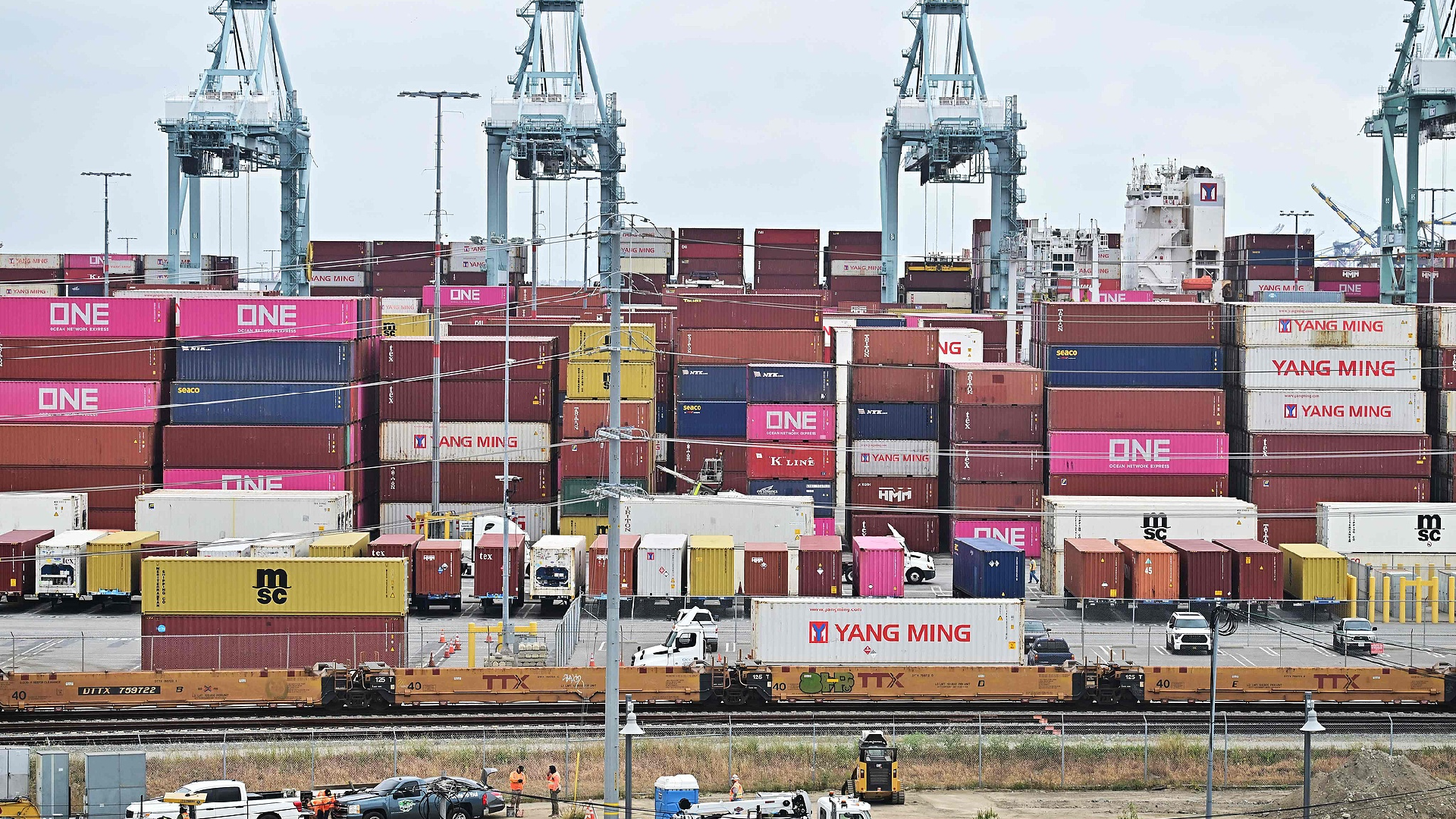WTO advocates for expansion in services trade and collaboration on standards
Since the WTO was founded nearly 30 years ago, the services sector has emerged as the most dynamic element of global trade. The 2024 China International Fair for Trade in Services (CIFTIS) highlights the significance of services trade on a global scale. This importance extends beyond merely driving economic growth; it also plays a critical role in promoting sustainable and equitable development.

The 2024 China International Fair for Trade in Services underscores the global significance of services trade, celebrating 30 years of the General Agreement on Trade in Services. Services trade is pivotal for economic growth and sustainable, equitable development.
### Main Benefits of Services Trade
**Growth and Jobs:** Services have been the fastest-growing component of global trade since the WTO's inception nearly 30 years ago. Last year, commercial services exports increased by 9%, while goods exports fell by 5%. Services not only contribute to economic growth but also play a critical role in job creation. Currently, the service industry employs about half of the global workforce, increasingly attracting women and younger workers as manufacturing becomes more automated and intertwined with services like technical testing and supply chain management.
**Opportunities and Inclusion:** Services trade enhances export diversification, integration into global value chains, and attracts foreign investments, which are crucial for improving employment and living standards. Particularly, it benefits women and youth, with 59% of employed women working in this sector as of 2021. Notably, services also support the burgeoning involvement of micro, small, and medium enterprises, fostering socioeconomic inclusion and aiding developing countries in transitioning to digital and green economies.
### Main Trends in Services Trade
**Digital and AI Revolution:** The rapid growth in digitally delivered services, notably in Asia, underscores a significant shift in the service sector, driven by the digital revolution. Services like artificial intelligence (AI) are reshaping trade, enhancing productivity, and potentially redrawing the global economic landscape. Regulation and standardization of AI in services could further boost these advancements.
**Supporting Green Transition:** Services trade is integral to the global shift towards a low-carbon economy, supporting sectors from renewable energy consultancy to construction and environmental goods production. Liberalizing trade in these services could substantially aid climate change mitigation efforts.
**Investment and Cooperation:** Linkages between services trade policies and foreign direct investment (FDI) are vital. The GATS framework, which includes trade through commercial presence, is pivotal for synergizing trade facilitation and FDI. International cooperation is essential in navigating the complexities of modern services trade, addressing needs for transparency, market openings, and rule development.
**Ongoing Initiatives and Future Directions:** The WTO's recent advancements include the adoption of new services domestic regulation disciplines, expected to save globally around 127 billion U.S. dollars. The WTO also actively supports digital trade through initiatives like the creation of a Digital Trade and Frontier Technologies Unit and ongoing discussions on e-commerce, emphasizing the need for modernized trade rules.
As we reflect on 30 years of GATS, it's clear that while significant liberalization has occurred outside WTO frameworks, further opening and clear commitments in services trade are crucial for future economic development and addressing emerging global challenges.As we consider the future, the urgency for robust commitments in services trade becomes apparent. Countries, including China, have taken commendable steps by opening their services markets in critical areas, such as banking, telecommunications, education, and transportation. This trend not only aligns with the global need for enhanced trade but also promotes domestic economic growth.
Looking forward, it is clear that the challenges posed by digital trade and climate-related services require a collective response from all WTO members. Thus, the call for further liberalization in services trade is paramount. Improved access and predictability in services markets can create a more uniform approach to trade regulations and foster shared prosperity.
### Bridging Gaps in Services Trade
Despite the advances made under the GATS, gaps still exist in access to services trade, especially for developing nations. Many countries lack the necessary infrastructure or regulatory frameworks to fully engage in the rapidly evolving services landscape. The WTO's collaboration with the World Bank aims to bridge these gaps by providing practical toolkits and technical support.
The focus should not only be on creating favorable conditions for trade but also on ensuring that the benefits of services trade are evenly distributed. This requires dedicated efforts to empower women and youth, that not only enhances economic outcomes but also cultivates a more diversified workforce equipped for future challenges.
### Addressing Future Challenges
As we navigate the complexities of services trade, it is vital to consider the implications of emerging technologies, including AI and digital services. These advancements present not just opportunities for growth but also priorities for regulatory frameworks that can adapt to rapid changes. Establishing clear and standardized regulations will be crucial in maximizing the economic benefits of these innovations while mitigating potential disruptions.
Moreover, the growing emphasis on sustainability mandates that services trade significantly contribute to environmental goals. By prioritizing green technology services and supporting industries in their transition to low-carbon operations, trade can become an engine for both economic growth and environmental stewardship.
### Conclusion
In conclusion, as we celebrate 30 years of the GATS, we acknowledge both the progress made and the work that lies ahead. Stronger commitments to liberalization in services trade are essential for all WTO members to meet the demands of a changing global economy.
China's leadership in expanding its services sector and participating in international initiatives is a positive development, but it is just the beginning. To realize the full potential of services trade, concerted efforts are needed to ensure that all countries can benefit from increased trade and investment opportunities.
The path forward requires collaboration, transparent policies, and a commitment to inclusion—ensuring that the transformative power of services trade benefits everyone, particularly those who are most vulnerable. By doing so, we can collectively achieve a more prosperous and equitable global economy, paving the way for a bright future in trade services and beyond.
Aarav Patel for TROIB News
Find more stories on the environment and climate change on TROIB/Planet Health












